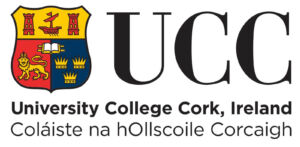MEngSc Ingeniería – Ingeniería Eléctrica y Electrónica
Puntos Clave
La ingeniería eléctrica y electrónica impulsa muchos de los avances tecnológicos que vemos en nuestro mundo que cambia rápidamente, desde las redes inteligentes y la robótica hasta los teléfonos inteligentes y la Internet de las cosas. Es una carrera emocionante y desafiante, caracterizada por un constante desarrollo personal, innovación e invención. El objetivo del programa MEngSc (Ingeniería Eléctrica y Electrónica) es construir sobre los buenos fundamentos de ingeniería de su título universitario, desarrollar habilidades avanzadas y presentarle algunas de las áreas clave y emocionantes de hoy y del futuro. Como parte de esta titulación llevarás a cabo un importante proyecto de investigación. También existe la oportunidad de solicitar una colocación industrial de verano remunerada.
Estructura del Programa
La colocación laboral es una característica importante del programa y se lleva a cabo al final del año 3 en este programa y tiene una duración mínima de 8 semanas. La colocación es supervisada por profesores de DkIT para apoyar al estudiante y garantizar que la experiencia de aprendizaje sea relevante para los Resultados de aprendizaje del programa.
Opciones de carrera
Nuestros egresados trabajan en áreas como Diseño de Productos Electrónicos, Servicios Eléctricos, Ingeniería Eléctrica, Control y Automatización y Comunicaciones.
Una muestra de nuestros destinos para graduados incluye:
- ABB
- Agilent Technologies
- Amazon Web Services
- Anord Mardix
- Analog Devices
- Blueacre Technology
- CombiLift
- ControlSoft Automation
- ESB International
- Electricity Supply Board
- Facebook,
- Glen Dimplex Renewables
- Hanley Energy
- Hewlett Packard
- Intel
- Mercury Engineering
- Nikon Precision Europe
- NXP Semiconductors
- Realtime Technologies
Entrega del Programa
Prácticas del curso
La Parte I del programa comprende 50 créditos de cursos impartidos y un informe de investigación preliminar por valor de 10 créditos. Estos se evalúan mediante una combinación de exámenes escritos y evaluación continua. La finalización exitosa del tramo inicial de los módulos de trabajo del curso califica al estudiante para avanzar a la Parte II. Parte II: una tesis de investigación en ingeniería eléctrica y electrónica (30 créditos)
Oportunidades profesionales
Los graduados de MEngSc (Ingeniería Eléctrica y Electrónica) tendrán una ventaja competitiva en el mercado laboral en virtud de la experiencia de vanguardia obtenida a través de su proyecto de investigación y los cursos avanzados y especializados en Ingeniería Eléctrica y Electrónica, particularmente en áreas que ahora tienen una gran demanda. , como aprendizaje automático, redes inteligentes, sistemas integrados e Internet de las cosas.
Requisitos de Admisión
- Los candidatos deben tener un título BE (Hons) en Ingeniería Eléctrica y / o Electrónica, o una calificación de ingeniería equivalente, con un mínimo de Segundo Grado con Honores I (NFQ, Nivel 8)
- Los candidatos de las Grandes Écoles Colleges también son elegibles para postularse si están estudiando una disciplina afín en una escuela de posgrado ENSEA o EFREI y son elegibles para ingresar al último año (M2) de su programa.
- Los candidatos deben ser aprobados por el equipo del curso MEngSc (Ingeniería Eléctrica y Electrónica) y / o el Director del Programa MEngSc (Ingeniería Eléctrica y Electrónica).
Requisitos de inglés
Todos los solicitantes de posgrado cuyo primer idioma no sea el inglés deben proporcionar evidencia de dominio del idioma inglés. Ciertas pruebas (por ejemplo, IELTS, TOEFL y Pearson PTE) tienen un límite de tiempo de tres años en su validez y se aplicarán. Las pruebas de idioma inglés deben realizarse no más de tres años antes del comienzo de un programa.
Tenga en cuenta que los puntajes de Secure English Language Test (SELT) deben obtenerse en una sola sesión de la calificación correspondiente (por ejemplo, IELTS y TOEFL). No aceptaremos una combinación de puntuaciones de componentes individuales de varias pruebas.
Los solicitantes que sean nacionales de un país que, según la UCC, sea mayoritariamente angloparlante, o que tengan un título o una calificación equivalente que se impartió en un país que se considera mayoritariamente angloparlante, normalmente se supondrá que tienen cumplió con los requisitos de idioma de la UCC. Sin embargo, en algunas circunstancias, es posible que se requiera que los solicitantes presenten evidencia de una calificación del idioma inglés para satisfacer los requisitos de ingreso al programa universitario.
Solicite su cotización
Un asesor se comunicará con usted por teléfono y correo electrónico dentro de las siguientes horas


